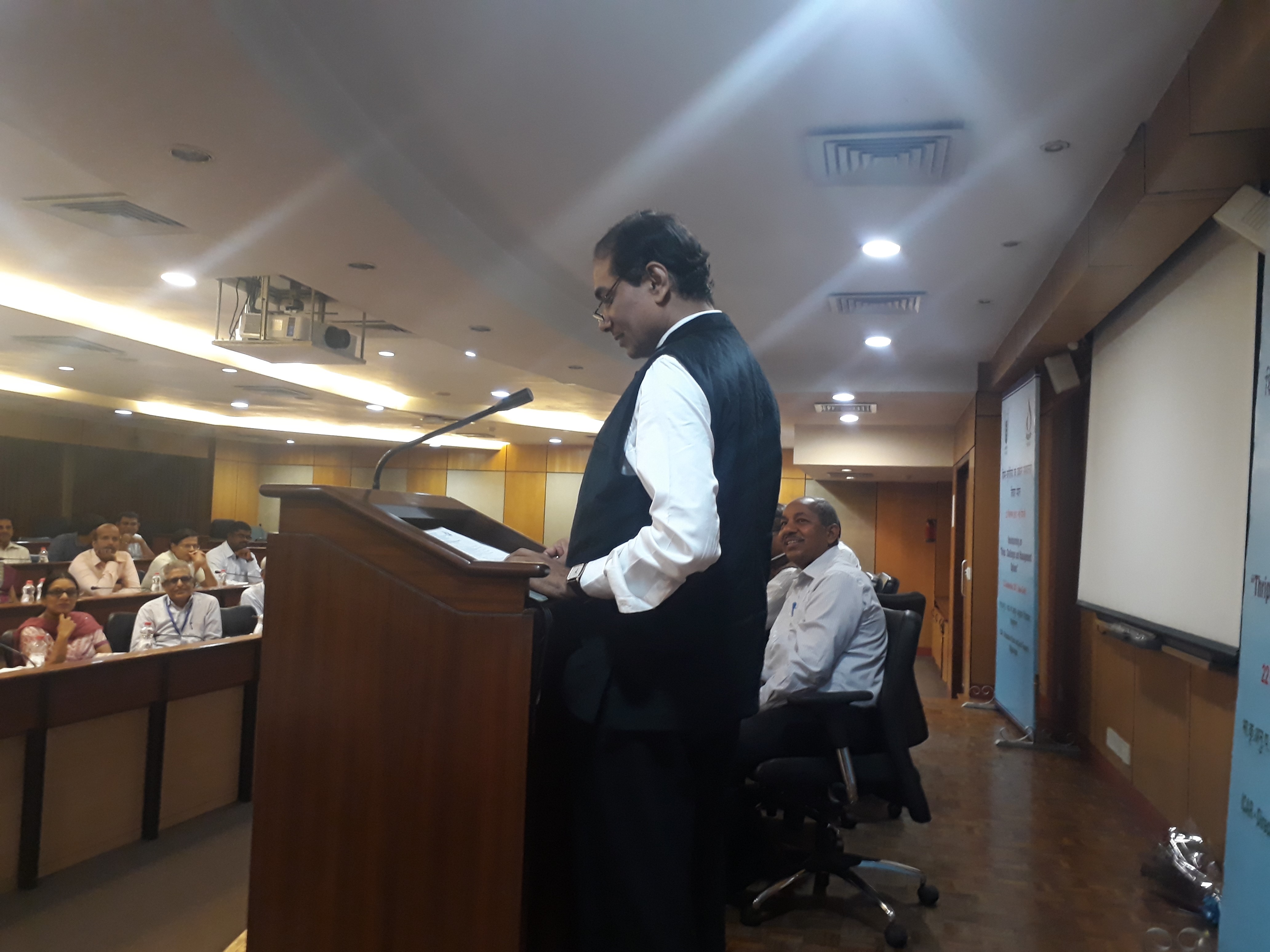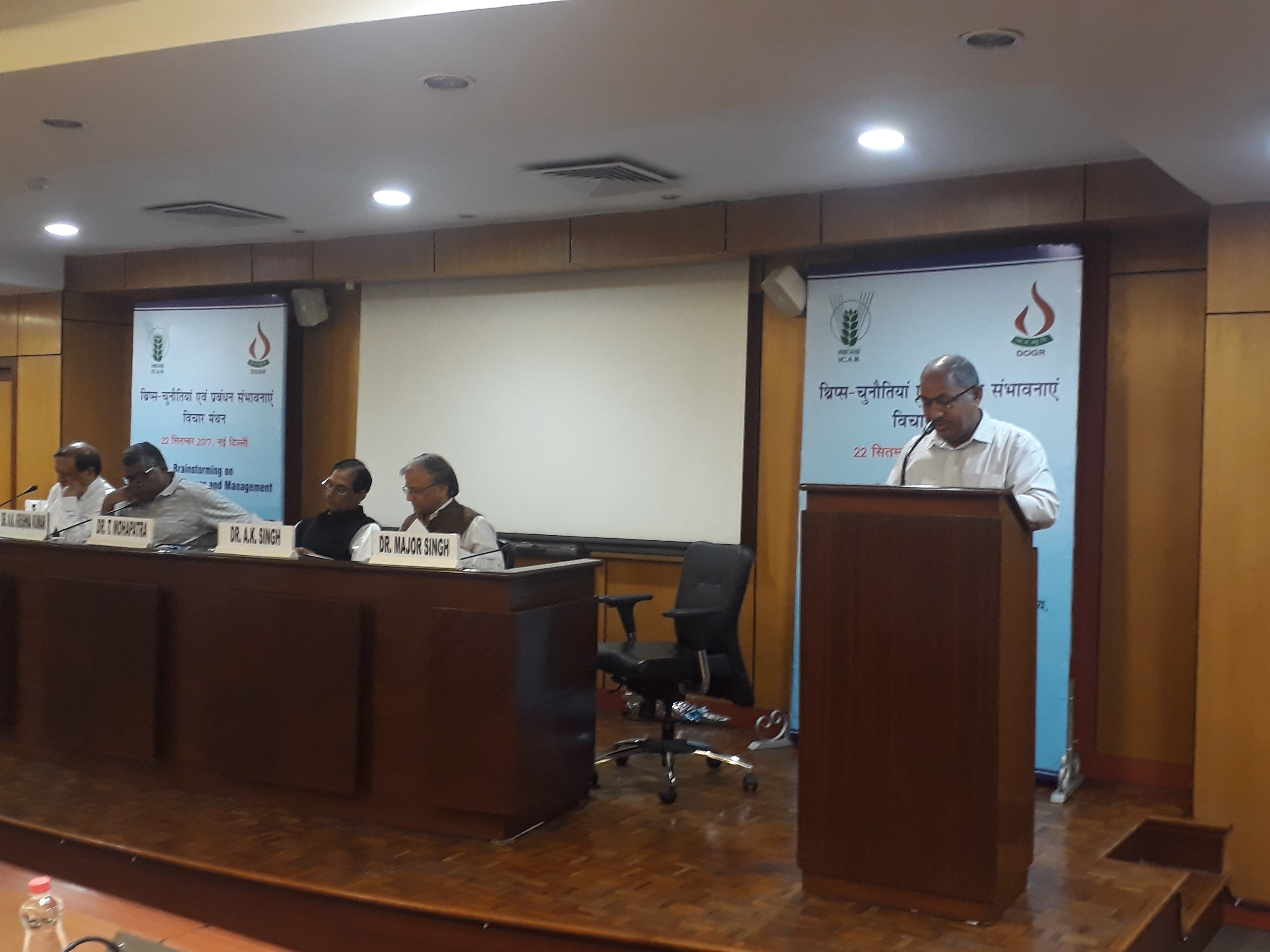Brainstorming on Thrips: Challenges and Management Options


ICAR-Directorate of Onion and Garlic Research (DOGR), Rajgurunagar, Pune organized a one-day brainstorming session on “Thrips: Challenges and Management Options” on September 22, 2017 at NASC, New Delhi, to address various issues related to thrips management in a holistic manner among all possible thrips species available from different crops.
Honourable Secretary DARE and Director General ICAR, Dr. T. Mohapatra was the Chief Guest. Dr. N. K. Krishnakumar, Regional representative (South and Central Asia) Bioversity international, New Delhi, and Dr. R. K. Jain, Joint Director (Edu) and Dean ICAR-IARI, were the special invitees for the programme. The programme was presided by Dr. A. K. Singh, DDG, Horticultural and Crop Sciences, New Delhi. Among the other dignitaries Dr. W.S. Dhillon, ADG (HS-I), New Delhi, Dr. D. B. Ahuja, Director ICAR- NCIPM, New Delhi braced the occasion. Scientists from various ICAR institutes, State University and DRDO had actively participated in the programme and shared their views and knowledge in various aspects relating to thrips management.
Dr. Major Singh, Director, ICAR-DOGR, Rajgurunagar, Pune welcomed the dignitaries and briefed about the importance of this pest and the objectives behind the genesis of this brainstorming sessions. Dr. N. K. Krishnakumar, Regional representative (South and Central Asia) Bioversity international, New Delhi, threw some light on possible reduction of onion production to be likely experienced in coming years especially due to thrips infestation coupled with rainfall. Dr. R. K. Jain, JD (Edu) and Dean ICAR-IARI, emphasised the importance of virus vector relationship in the present context. Dr. A. K. Singh, DDG, Horticultural Science, New Delhi urged the participants to look into the importance of pesticide residues in our export produce. He also emphasized on the importance of formulating viable management strategies for immediate use that could suffice our farmers demand.
Dr. T. Mohapatra DG, ICAR in his inaugural address highlighted the importance of thrips bio-ecology, parthenogenetic behaviour, pathogenicity and development of insecticidal resistance for devising feasible management strategies. He also emphasized upon some novel technique like RNAi, and techniques for long term solution such as use of lethal mutants, Sterile insect technique (SIT) and Release of Insects carrying Dominant Lethal genes (RIDL) has limited scope in thrips due to parthenogenesis. He also appreciated ICAR-DOGR for taking initiatives to organize the brainstorming on "Thrips: Challenges and management Options", which pave way for a common platform where all scientists working with thrips could exchange their views and render their expertise to tackle this pest in an efficient manner.
Scientists working in the field of Agricultural Entomology, Plant Pathology and Bio-technology from various ICAR institutes participated and presented available management options for thrips managements in various crops. The group actively deliberated on relevance of available strategies for thrips and tospovirus management. Participants actively exchanged their views, experience to tackle upcoming challenges for thrips management as a pest and vector. Further, it was unanimously decided to form dedicated group focusing on various aspect of thrips management.